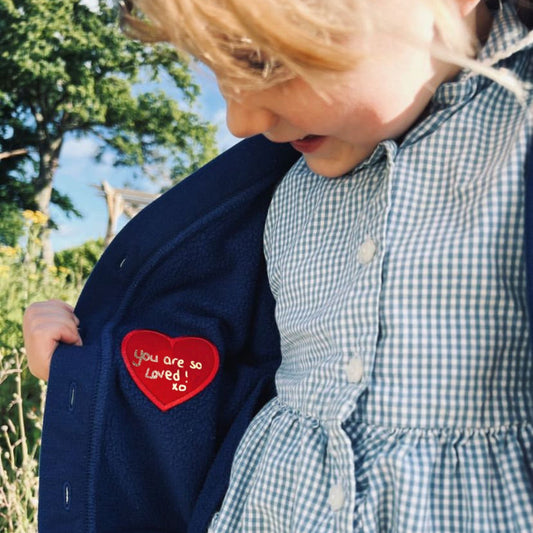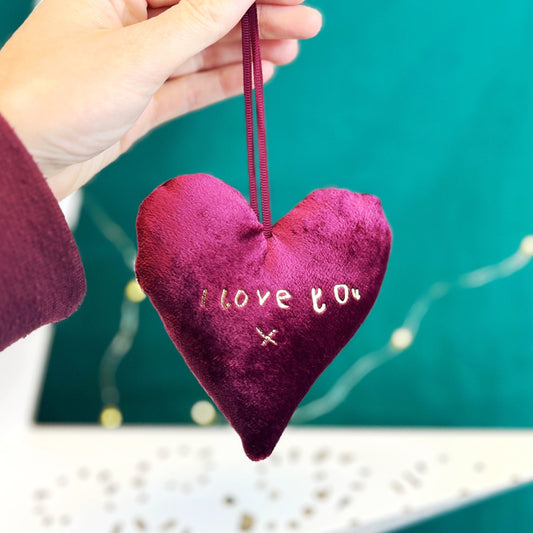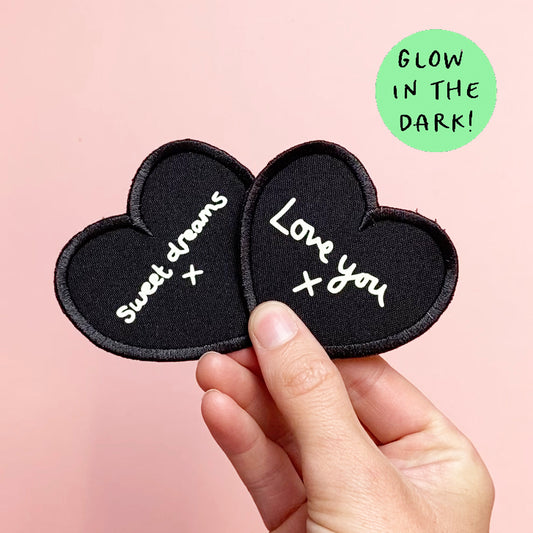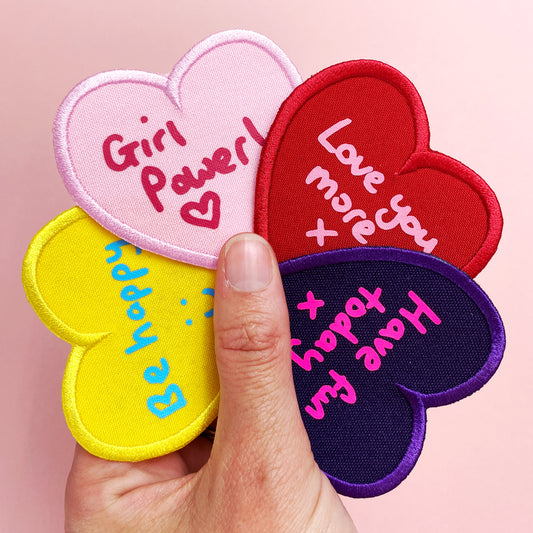If you have been following me for while then you will know that supporting children with separation anxiety is something close to my heart having been through it with my own family. My daughter has always found it hard leaving us, and although it is generally better as she has got older (now 7) we do still have incidences most weeks where she becomes overly sad when apart from us- particularly me.
Some typical signs of separation anxiety we have had over the years have been-
- Needing us to lay down with her in bed until she falls asleep
- Being overly upset at nursery and school drop offs
- Becoming anxious if she knows we are due to be going out without her
- Drawing out long goodbye routines
We have tried various things over the years and the thing we have most recently found the most successful is having a transitional object- something to remind her of me when we are apart. This has been a huge inspiration behind some of my designs such as the Kids Secret Message Hoodies and Pocket Squares.
When I go to work in the morning she also loves to give me things of hers to take with me (like a small toy or drawing for example), and after a recent chat with CBT Therapist Navit Schechter, this is also a typical response from children as it is another way to remain connected while you are apart, almost like they don't want you to forget them. I found this really interesting and asked Navit if she would like to share some of her learning about separation anxiety in children with us.


Why children may suffer from separation anxiety
All humans are biologically driven to feel safe. Babies, toddlers and young children are no different and like being close to their main caregivers as that is where they feel safe. This is a normal part of development and is why your child may cry and get distressed when they have to leave you. For most children, this will change over time as their brain and confidence being away from you develops.
What you can do to help
If you are able to adapt your situation, then it's OK to do so. Most children will naturally feel more able to be apart from you with time, this isn't something that needs to be forced before they're ready. But it's not always possible to adapt our situations though and that's OK too. We live in a busy world where many parents work and need time for themselves too.
These six tips can help your child to cope with being apart from you-
1. Ease your child in to being away from you. If possible, practising short separations (in a familiar setting) first before being away for longer and being in new situations can help your child adjust to being without you.
2. Let your child know what will be happening in advance so they know what to expect. If you know that they will worry there's no need to do this too far in advance, but making sure that they can picture what they will be doing can help them to feel safer. Let them know where they will be, who will be taking care of them and when you will be back.
3. Make plans for when you are back together. This will help your child manage the transition and spending even 10 minutes together without any distractions can help your child feel safe and connected with you again.
4. If it helps them, arrange for your child to have something comforting with them e.g. a favourite teddy or something that smells of you. This can help them feel safer and more secure. They may also like to know that you have something that reminds you of them close by too e.g. a photo or picture.
5. Stick to your plans. It can be tempting to hang around longer when your child is upset, wanting to make sure they're OK but this can draw out the moment of separation making it harder. Once you've planned with your child how you will manage the separation, make sure to see it through.
6. Let your child know that it's OK for them to get upset that you're leaving. Emotions are a normal (and essential) part of life which we don't need to prevent our children from feeling. Letting them know "it's OK to be sad when I go, I understand that" and reminding them who will comfort them if they need it can help to model that emotions are OK. Children are very sensitive and often pick up our emotions. Making sure to manage your own feelings about the separation will help them manage theirs too.
It's normal to feel upset leaving your child or seeing them upset. If leaving your child is causing you to feel overwhelming feelings of sadness, anxiety or guilt or their separation anxiety causes them to be upset for a long time after you've left them then it may be time to seek help. You can speak to your GP or health visitor or contact us at hello@consciousandcalm.com.
Navit Schechter, CBT therapist specialising in working with parents and families, and founder of Conscious & Calm (www.consciousandcalm.com)
-----------------
I will definitely be taking note of tip number 5 as I find it easy to get drawn into a long goodbye when she is finding it difficult. Tip number 4 is something we can help with! You might already have an item your little one likes to take with them for comfort when you are apart, in which case, perfect. But if not, we do have a collection designed to support children who get upset when they leave their parents or caregivers. There is something so personal about handwriting that it gives a deep connection- its not only the comforting words but also knowing that it was written by the person you are missing.
We are also working on some new products ready for children starting school which I can't wait to show you (coming soon).
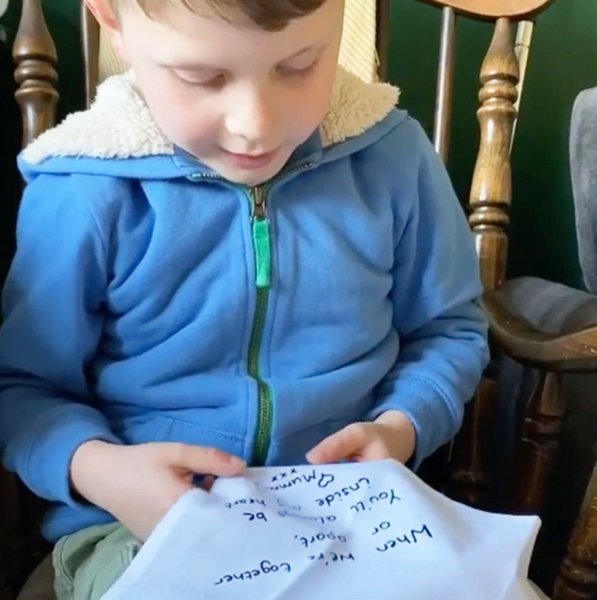
I get a lot of messages from lovely customers whose children struggle to be apart from their parents, so I really hope that some of these help you too. Read one of our real life customer stories here.



